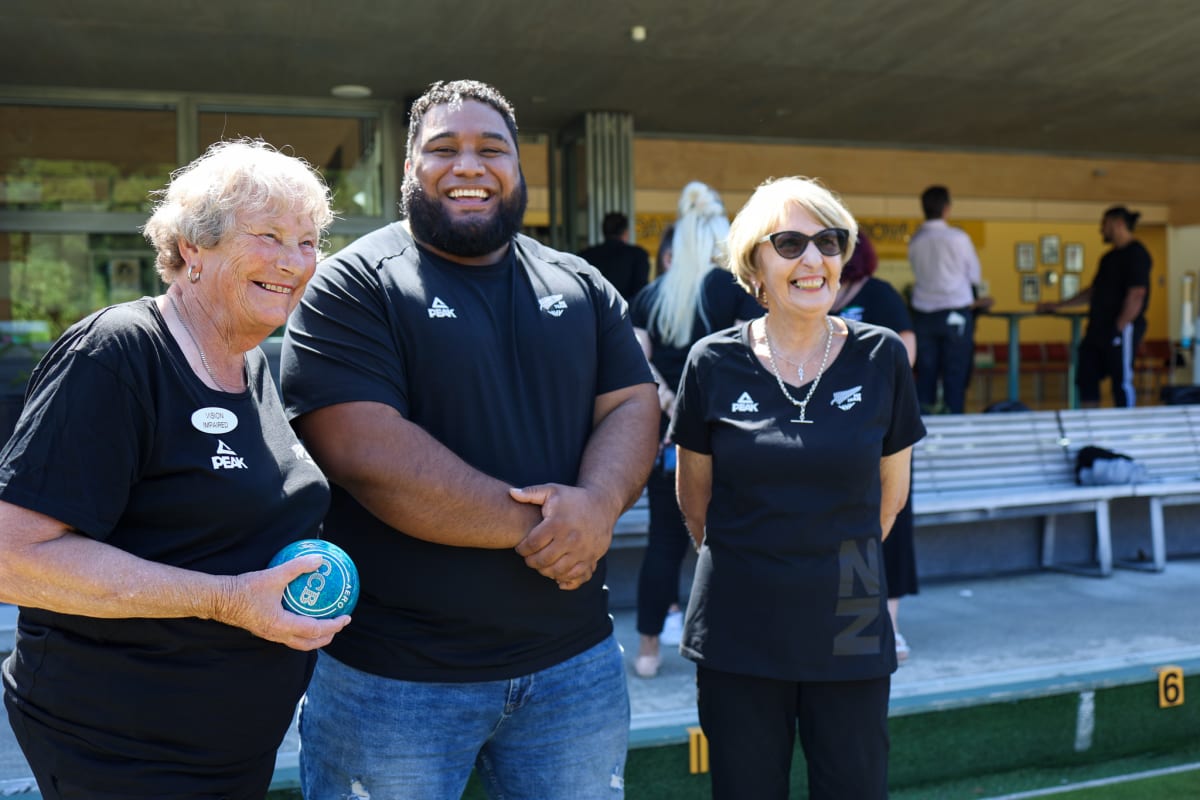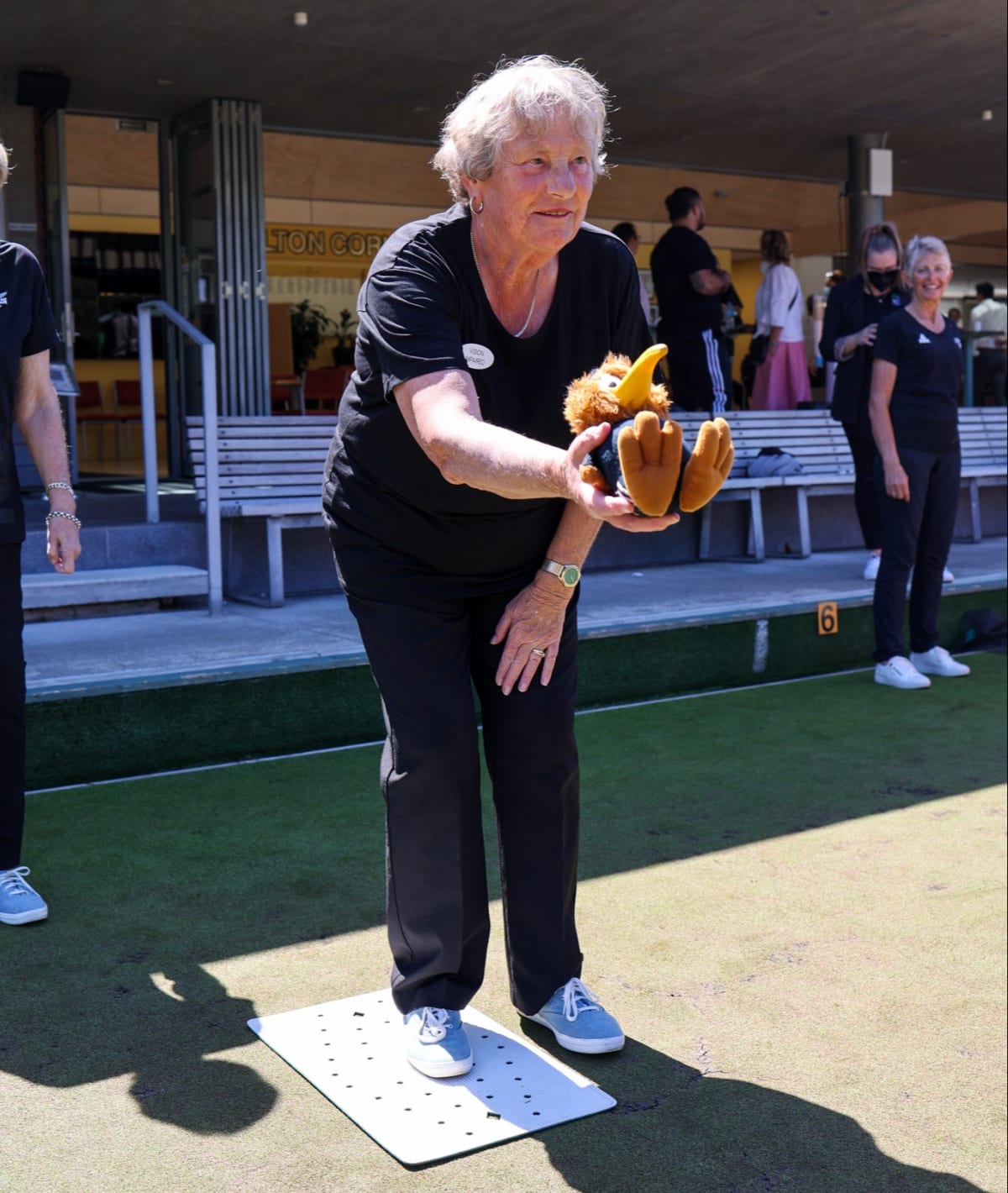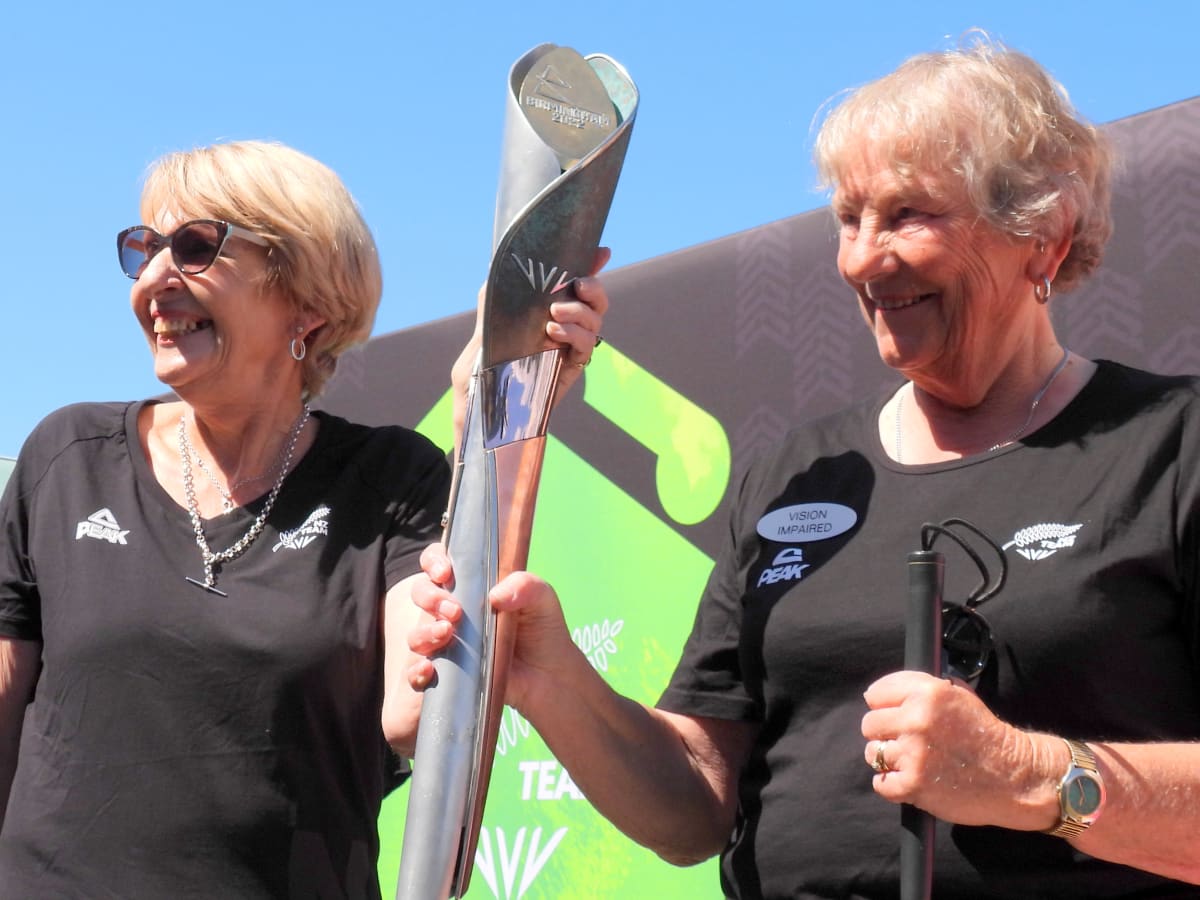
Best mates on and off the green, para bowler Sue Curran and her sighted director Bronwyn Milne are bound for the Birmingham Commonwealth Games. They tell Lauren Crimp how they've stood by each other through their darkest times.
When Sue Curran and Bronwyn Milne first met 30 years ago, they couldn’t have dreamed that in their seventies, they’d be competing together on a bowling green at the Commonwealth Games.
Neither had played bowls back then – they were friends from work, who became inseparable after Curran’s husband passed away in 2001.
When that happened, Curran says, Milne was her rock.
“Bronwyn was the person who was right there for me,” she says.
“We’ve been through a lot together, you know, losing different parts of the family on both sides. We’re just there for each other.”
Now Milne will be there for Curran, who is visually impaired, and together they will compete in the para lawn bowls B2-B3 mixed pair at Birmingham in July. Milne is her sighted 'director', and they’re teamed up with Deane Robertson and director Kevin Smith for the Games.
Connecting through sport isn’t unfamiliar territory for the Hamilton friends.
At the first memorial golf tournament for Curran’s late husband, Milne was her caddy. The roles were reversed when Curran’s vision stopped her playing.
The Birmingham competition will be just the third time para bowls has featured in the Commonwealth Games – and hopefully, third time lucky for Curran.
At the 2014 Games in Glasgow, Curran was the oldest athlete competing. She held the honour again on the Gold Coast four years later, when she “vowed and declared” it would be her swansong.
But Curran was just “too competitive” to give the game away.

Missing out on medals in the last two Games (finishing fourth in Glasgow and fifth on the Gold Coast), she says her closest friend may make the difference this time around.
The friends become bowls partners in 2019 when Curran's former director, Ann Muir, wasn’t available to travel for a tournament in Israel.
There was one obvious shoulder to tap, says Curran.
“I think she hesitated probably for two minutes" Curran says of Milne. "So Bronwyn came to Israel, and she’s been my helper and director locally ever since.”
Having never picked up a bowl before Israel, Milne is still blown away that she's travelling and competing with her best friend.
“It’s unreal,” she says. “Who, at 71, is going to their first Commonwealth Games not as a spectator, but as a participant?”
Despite their friendship always being strong, before the Israel tournament Milne wondered what such a big trip would be like for the two of them.
“It’s totally different travelling together, but it was just perfect,” she says.
So perfect, she didn’t even open the book she’d taken with her to read.
“We just sat on the plane the whole way and chatted until we went to sleep, and it was the same coming back," Milne says.
The sightseeing aspect of the trip was initially Milne's main priority, says Curran.
“Bronwyn really wasn’t interested in the bowls the next week, until she got to the bowling green. Then she was buzzing, absolutely buzzing," she says.
Giving each other space makes their friendship strong, says Curran, considering they spend so much time together.
“We know when to back off a little bit, which is very important in a friendship," she says.

The pair train four times a week and walk a lot to stay fit for two-and-a-half hour games strolling up and down the green. Although they belong to the Claudelands Bowling Club, they've been practising on croquet lawns in Hamilton East.
New Zealand bowling greens are fast, where English greens are harder, slower and longer, Curran says, so the croquet greens have helped build her strength.
The director’s role is all about communication and detail, says Milne.
Using a clock face to indicate where the jack and bowls are, Milne also tells Curran where to stand, which hand to bowl with, and the distance she needs to hit.
"I’m Sue’s eyes,” she says.
Blind bowlers have different sight classification categories, from B1 (completely blind) to B4. As a B3, Curran can see up to about 20 metres, but it’s very blurry and her peripheral vision is limited.
When her vision started to deteriorate in 2011, Curran’s stepfather encouraged her to take up indoor bowls.
She entered and won the nationals that year, and then gave outdoor bowls a go.
After two games she was selected for the national team, the Blind Jacks, and in 2013 entered the world championships, bringing home silver in the B4 ladies singles and bronze in the B4 mixed pairs.
In that event the pressure was off, says Curran, because she was so new to the sport. “We didn’t have a clue what we were doing, we just did what we were told.”
Now a far more experienced athlete, Curran plays at her third Commonwealth Games with pairs partner Robertson. He is a B2 and can see about half a metre.
With the women in Hamilton and men in Christchurch, they haven’t trained together yet, but hope to make that happen before a trip to Queensland for a trans-Tasman competition next month.
Instead, they speak on the phone once a week to update each other on progress.

With Curran and Smith’s experience, mixed with Milne and Robertson who are newer to the game, Curran is optimistic about the team’s chances.
“I think as a combination we will gel when we get together,” she says.
Robertson has followed a similar path to Curran, winning his first national title just three months after his first blind bowls have-a-go night at Christchurch’s Burnside club.
“I didn’t really think ever I’d do this,” says Robertson. “To play for your country, that’s a big thing; that’s an honour.”
With his heart firmly set on winning gold, Robertson says trust and communication with his director, and Curran and Milne, is one key to success.
Listening to your coach, he says, is the other.
With 50 years’ bowls experience, coach and director Kevin Smith says working with Robertson and other blind bowlers is a privilege.
Players like Robertson are courageous and inspirational, he says.
“Deane can see 18 inches blurred, he’s got one eye, he’s got a prosthesis in the other eye, so life’s a challenge," Smith says. "There's heaps of things he can’t do.
“But he wants to work hard, we’ve put in hundreds of hours, thousands probably, and here now he’s been selected to play for New Zealand.”







